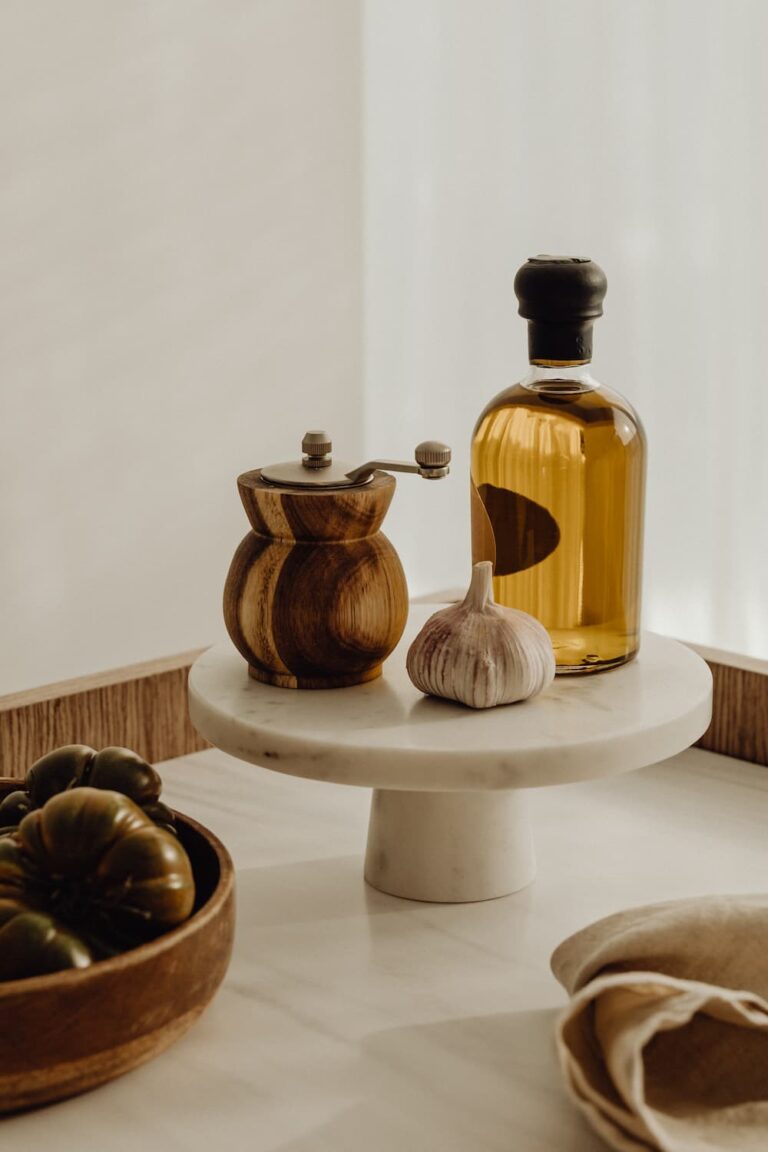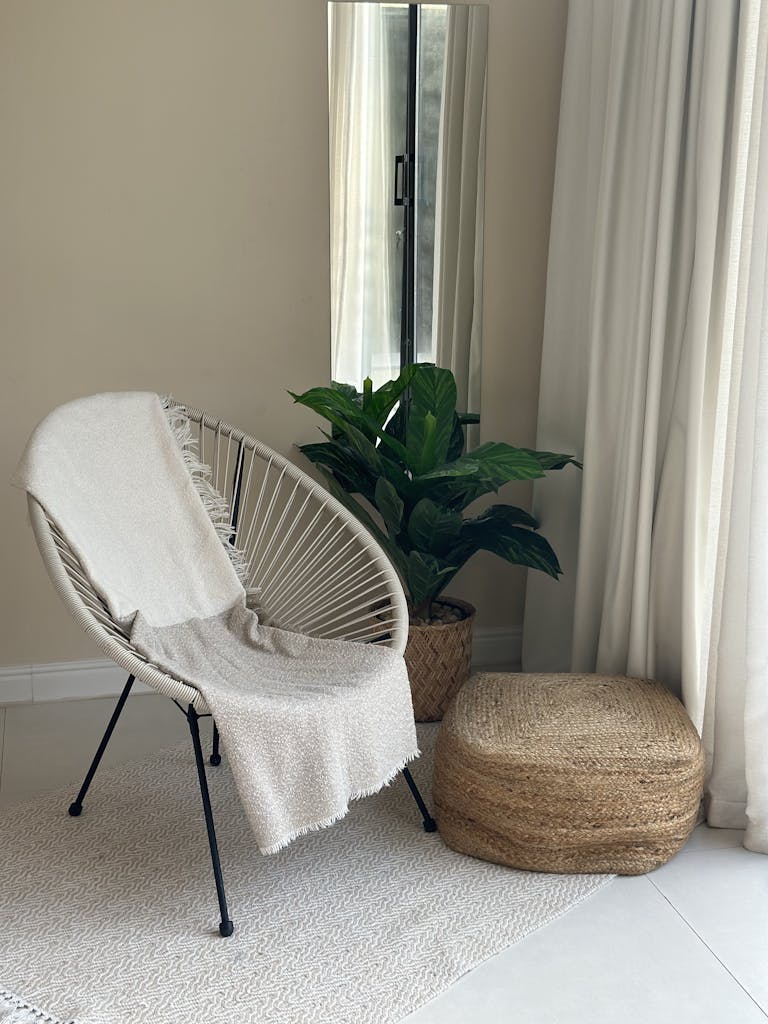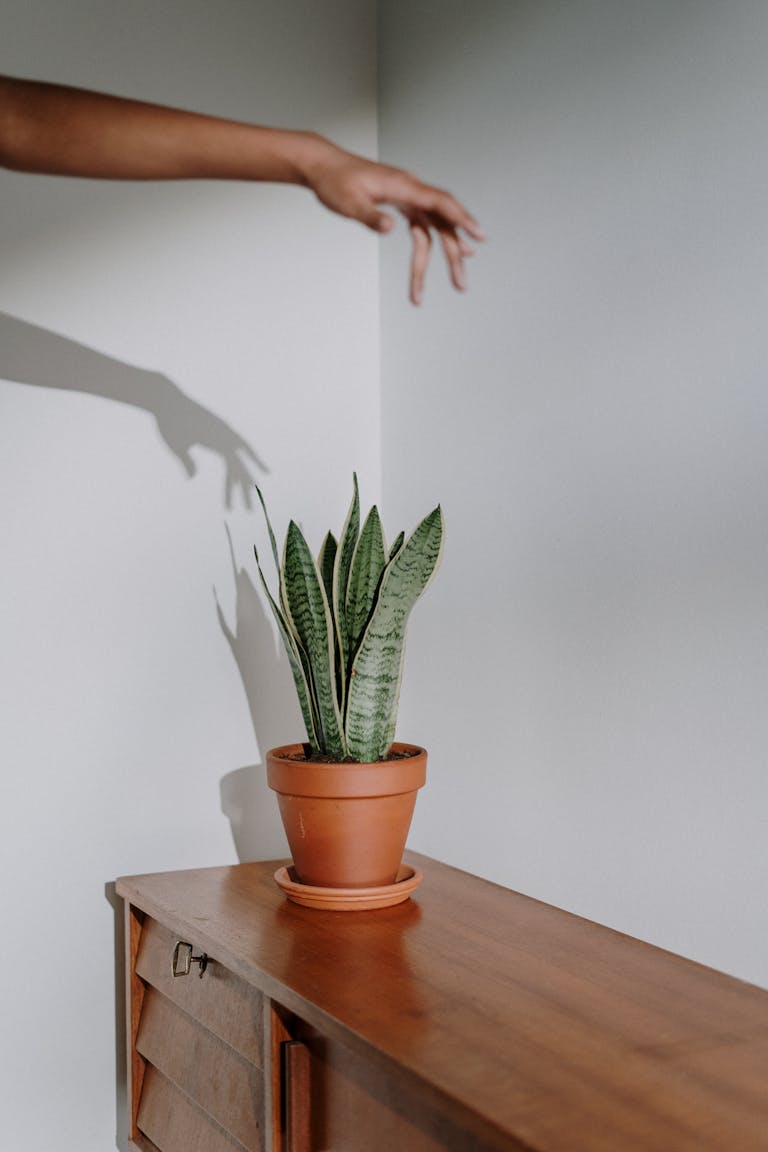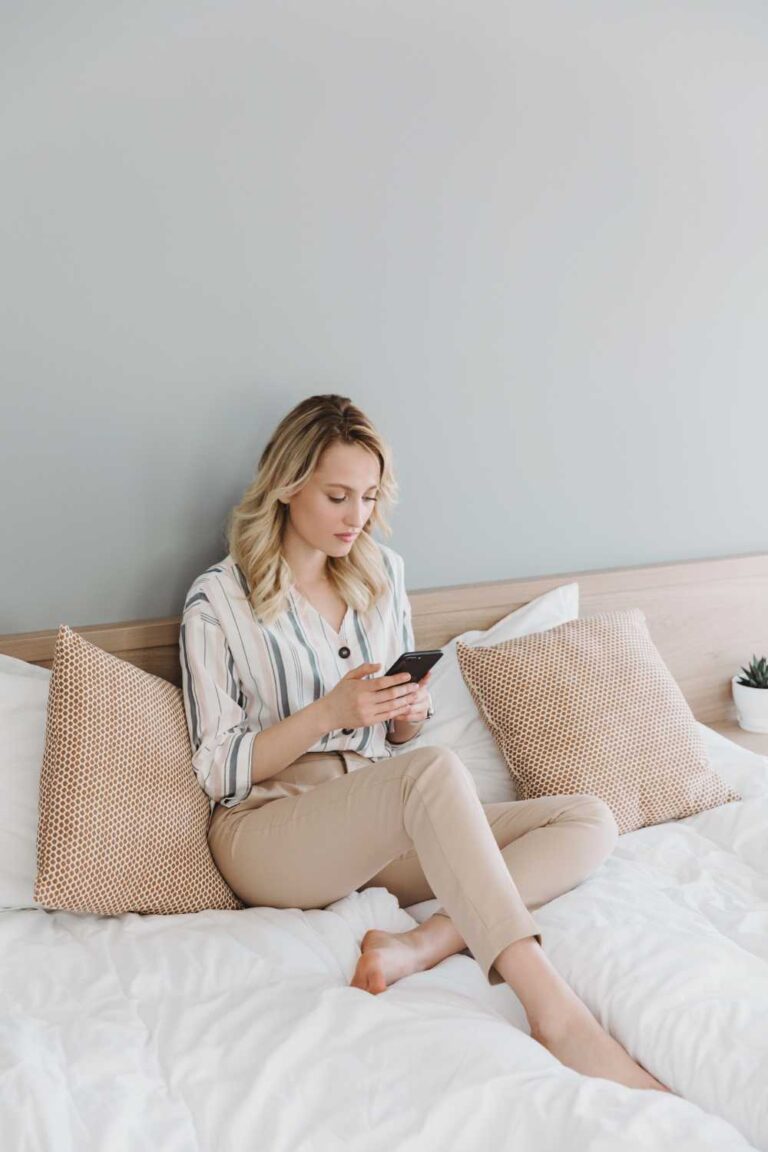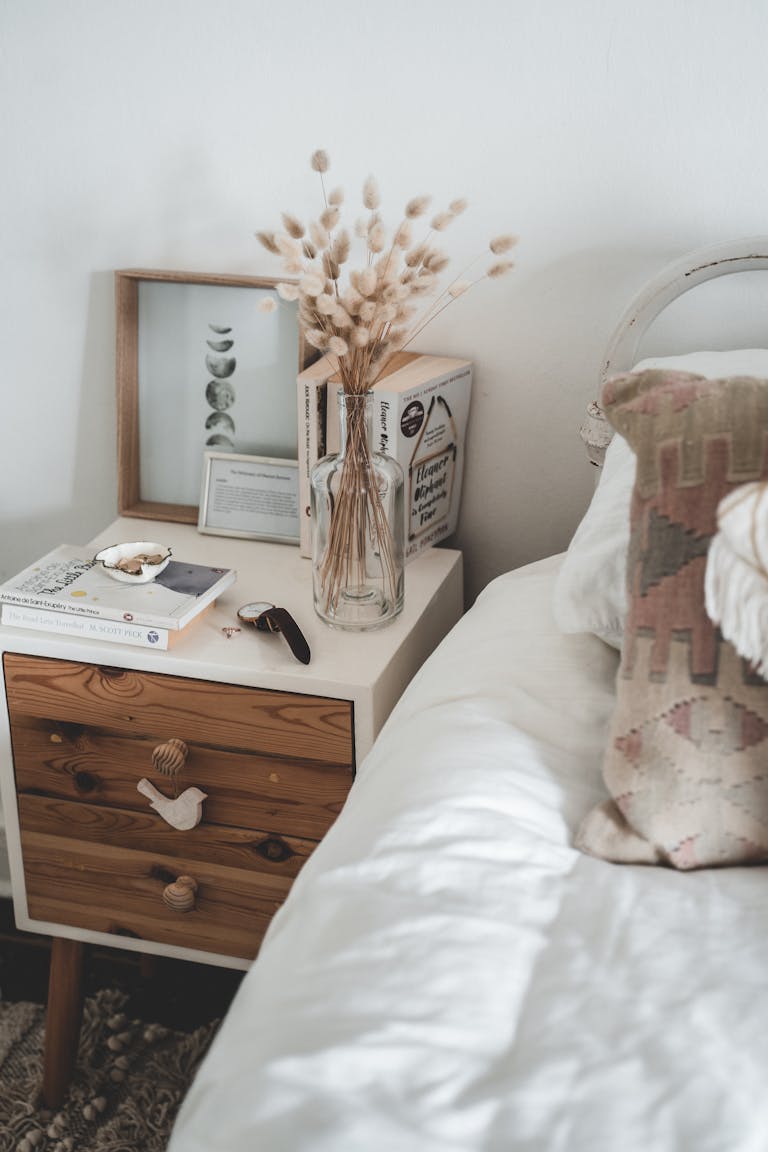How to Design a Home Office Interior: Ultimate Guide
Working from home has become increasingly popular, and having a well-designed home office can significantly enhance productivity and comfort. Creating an inspiring and functional workspace requires careful consideration and attention to detail. This article will explore the critical aspects of designing a home office interior that promotes efficiency and creativity, including the work space, desk, house, and designer.
Designing a home office is not just about aesthetics; it’s about creating a work space that fosters focus and productivity. With the help of an interior designer and the right office desk, you can transform any space into a productive workspace that suits your style and needs.
Benefits of a Well-Designed Home Office
A well-designed home office offers several benefits. Firstly, it provides a dedicated work area, such as a desk, helping to separate professional and personal life. Additionally, a thoughtfully designed office space can boost productivity, creativity, and overall job satisfaction. It allows for better organization, reduces distractions, and provides a comfortable environment supporting long work hours in a home office space.
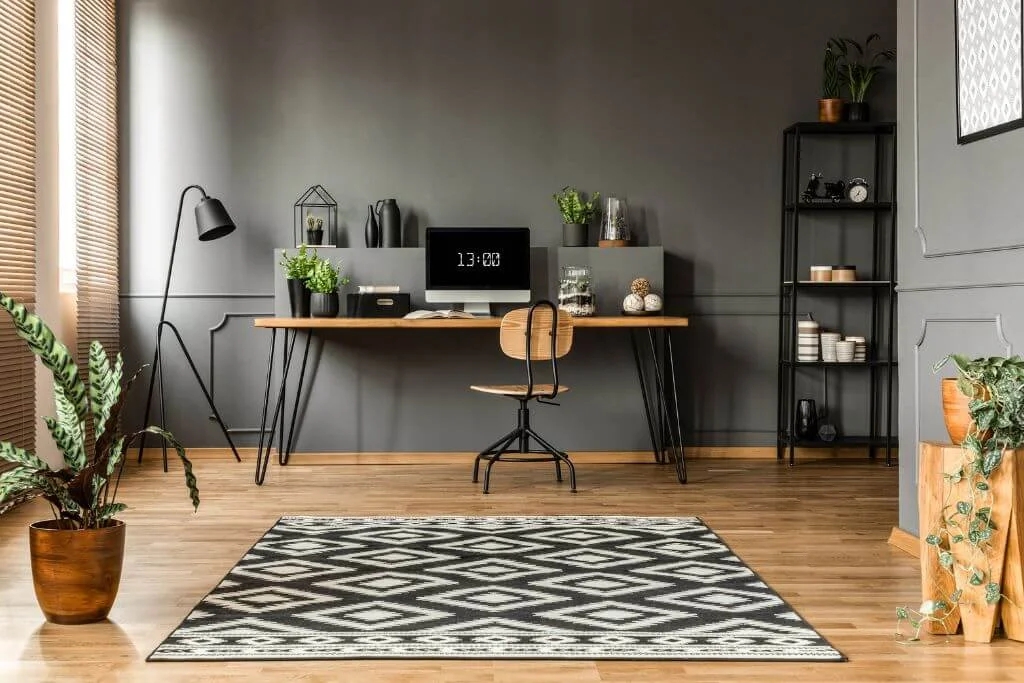
Image by: Pexels
Considerations for Home Office Design
Before diving into the design process, remember a few key considerations. Firstly, choosing the right location is crucial. Consider factors such as noise level, privacy, and accessibility. Maximizing natural light in your office space is important as it improves mood and energy levels. Additionally, selecting the ideal furniture that offers comfort and functionality is vital.
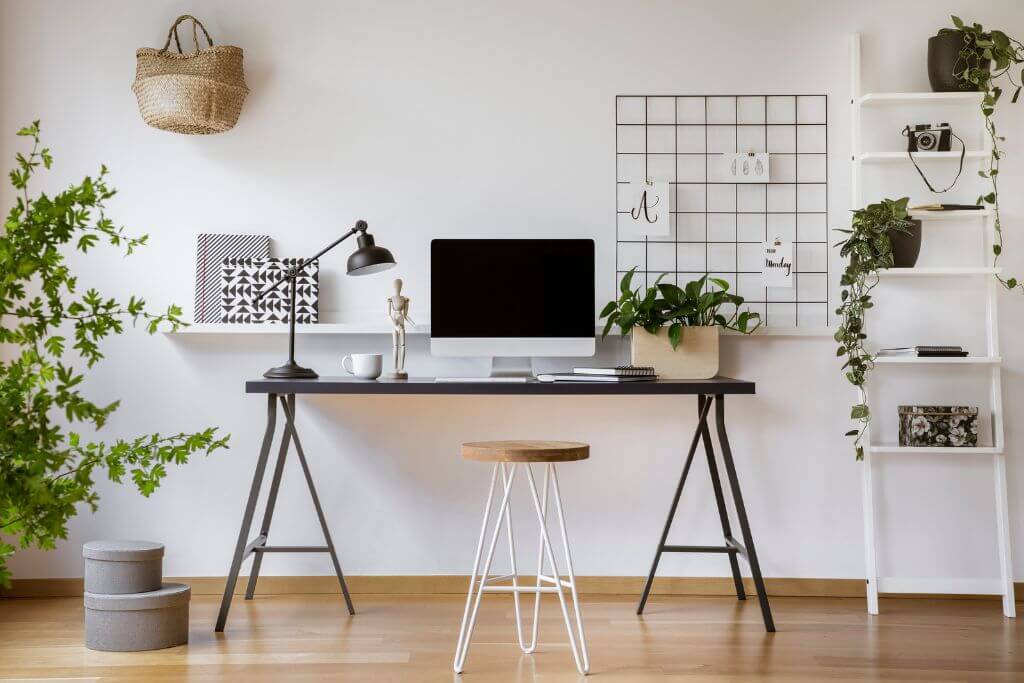
Image by: Pexels
Choosing the Right Location
When choosing a location for your home office, try to find a quiet area away from the main living spaces. This will help minimize distractions and create a focused work environment in the office. A spare bedroom, a living room corner, or even a converted attic or basement can be suitable options, depending on your space availability.
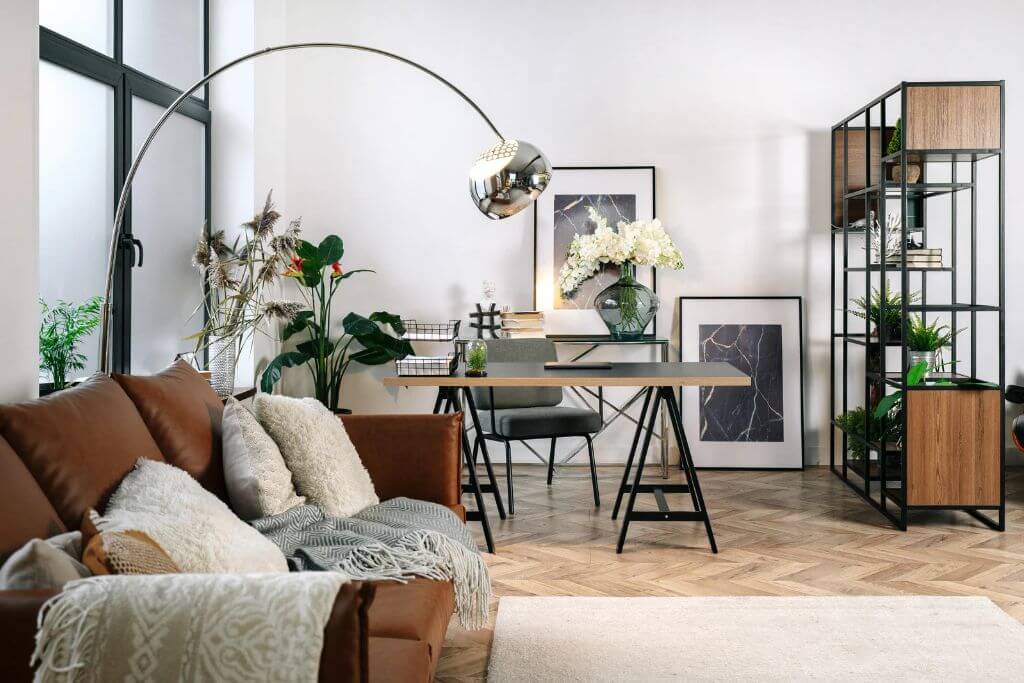
Image by: Unsplash
Maximizing Natural Light
Natural light has a significant impact on our well-being and productivity at work, in the office, or in a study room. Whenever possible, position your desk in a room near a window to maximize the amount of daylight in your home office. This provides a pleasant view, reduces eye strain, and enhances your mood.
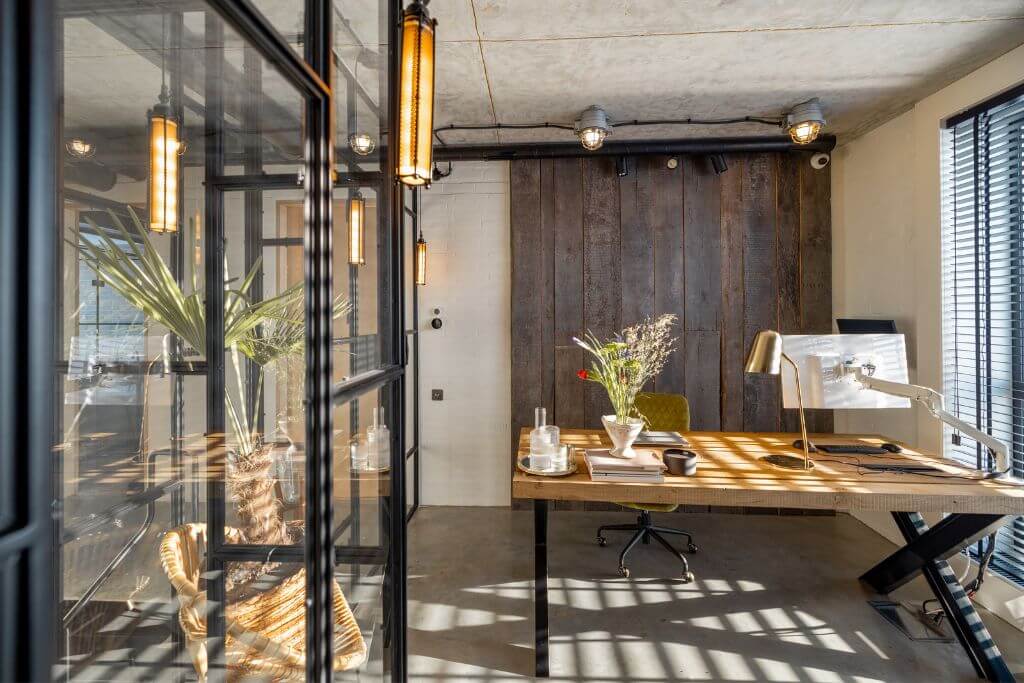
Image by: Unsplash
Selecting the Ideal Furniture
The right desk and furniture is essential for a functional and comfortable home office. Start with a good-quality desk and ergonomic chair that promote proper posture and reduce the risk of back pain. Consider additional furniture like storage cabinets, bookshelves, a desk, and a comfortable seating area for breaks or client meetings in the office.
Read more: Home Decor vs. Home Furnishings
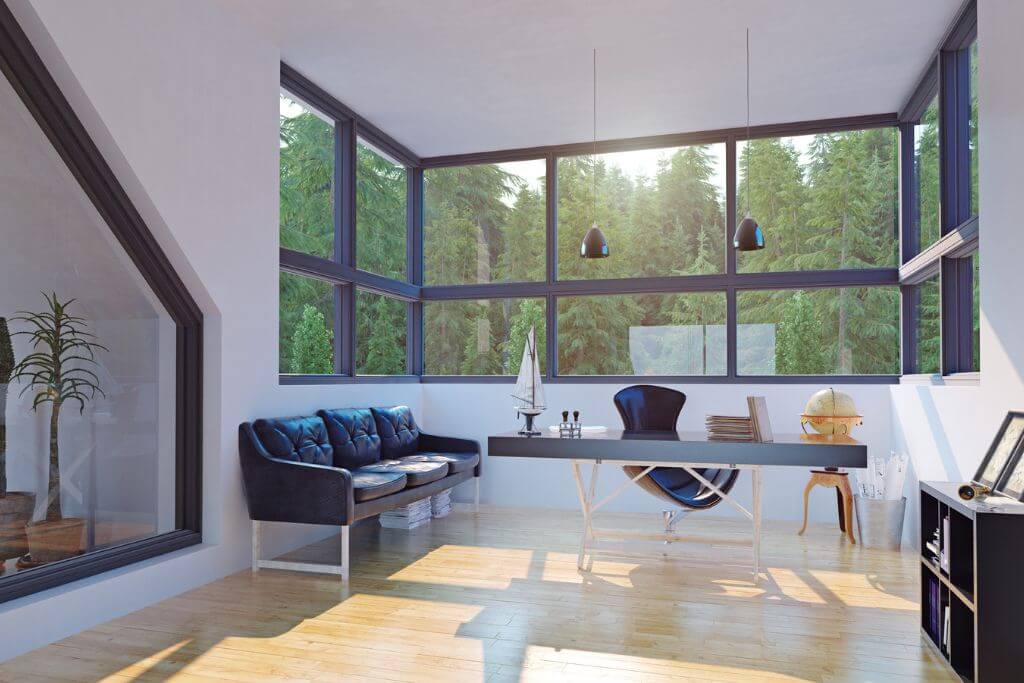
Image by: Unsplash
Organizing Storage Spaces
An organized workspace is key to maintaining focus and efficiency. To keep your office clutter-free, incorporate adequate storage solutions, such as shelves, cabinets, and drawers. Utilize storage containers and organizers to categorize and store office supplies, files, and other essentials.
Enhancing Ergonomics
Ergonomics plays a crucial role in creating a comfortable and healthy workspace. Adjust your chair and desk to ensure proper alignment and posture. Use ergonomic accessories like a keyboard tray, monitor stand, and wrist support to prevent strain and injuries. Don’t forget to take regular breaks and stretch at the office or at home to avoid sitting for prolonged periods.
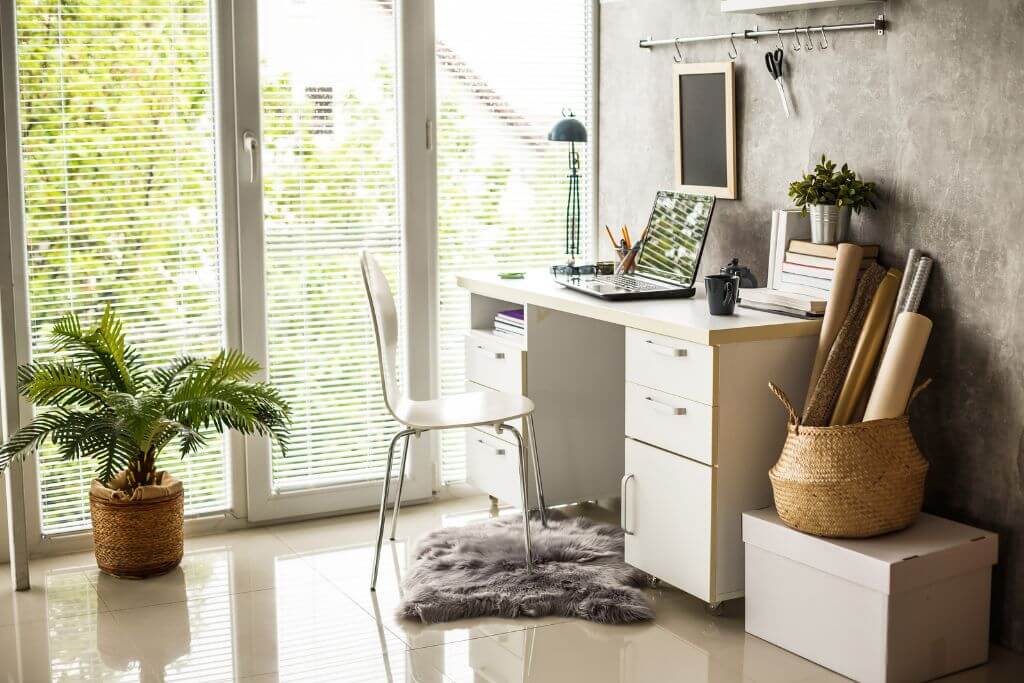
Image by: Unsplash
Incorporating Technology
In today’s digital age, technology is integral to any home office. Ensure you have the necessary equipment, such as a reliable computer, printer, and high-speed internet connection. Invest in cable management solutions to keep cords organized and prevent tangling. Consider additional tech accessories like a second monitor or a wireless charging pad to enhance your workflow.
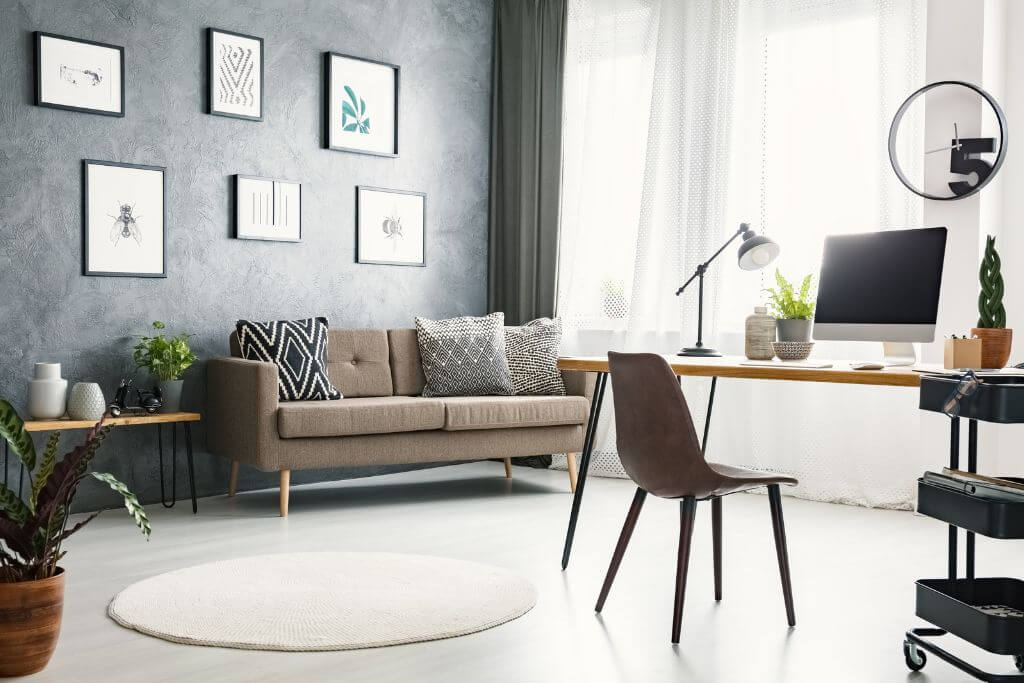
Image by: Unsplash
Adding Personal Touches
A home office should reflect your personality and inspire creativity. Add personal touches like artwork, plants, or meaningful decorations that motivate and energize you. Surround yourself with items that bring you happiness and make the space personalized and inviting.
Creating a Distraction-Free Environment
Minimizing distractions is crucial for maintaining focus and productivity. Keep your workspace organized and free of clutter. Establish boundaries with family members or roommates, letting them know when you’re in work mode. Consider noise-canceling headphones or background music to drown out external noises.
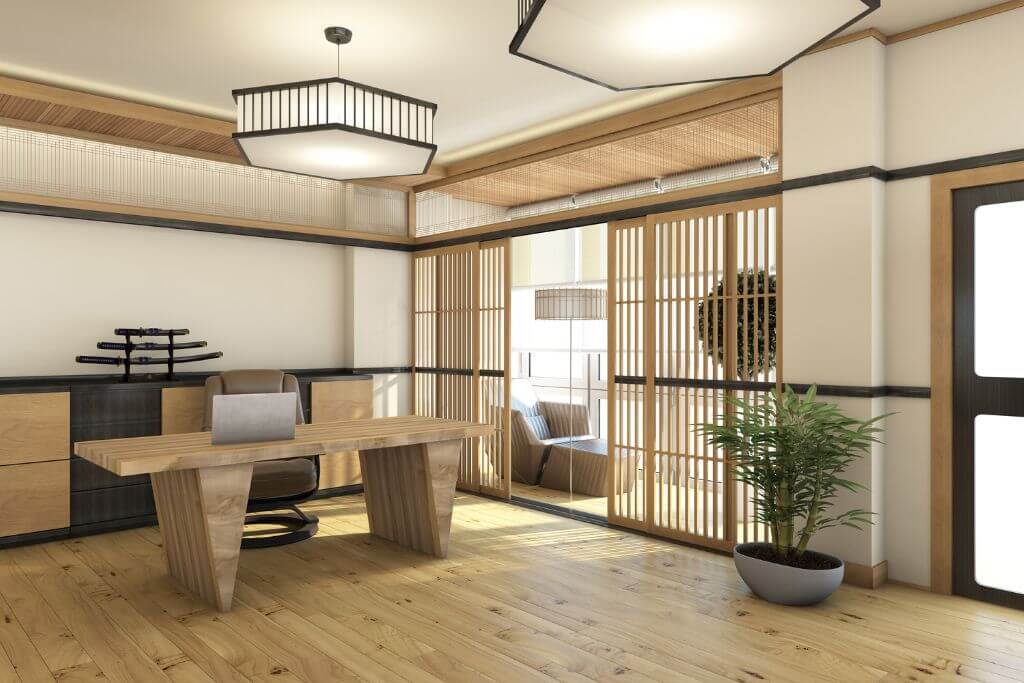
Image by: Unsplash
Maintaining a Productive Atmosphere
Establish a routine and set boundaries between work and personal life to maintain a productive atmosphere. Create a schedule and stick to it, putting specific office work hours. Take breaks and engage in activities that recharge your energy. Stay motivated by setting achievable goals and rewarding yourself for accomplishments.
Budget-Friendly Design Tips
Designing a home office doesn’t have to break the bank. There are several budget-friendly ideas to consider. Opt for second-hand furniture or repurpose existing items. Use creative storage solutions like DIY shelves or hanging organizers. Explore thrift stores or online marketplaces for unique and affordable decor pieces.
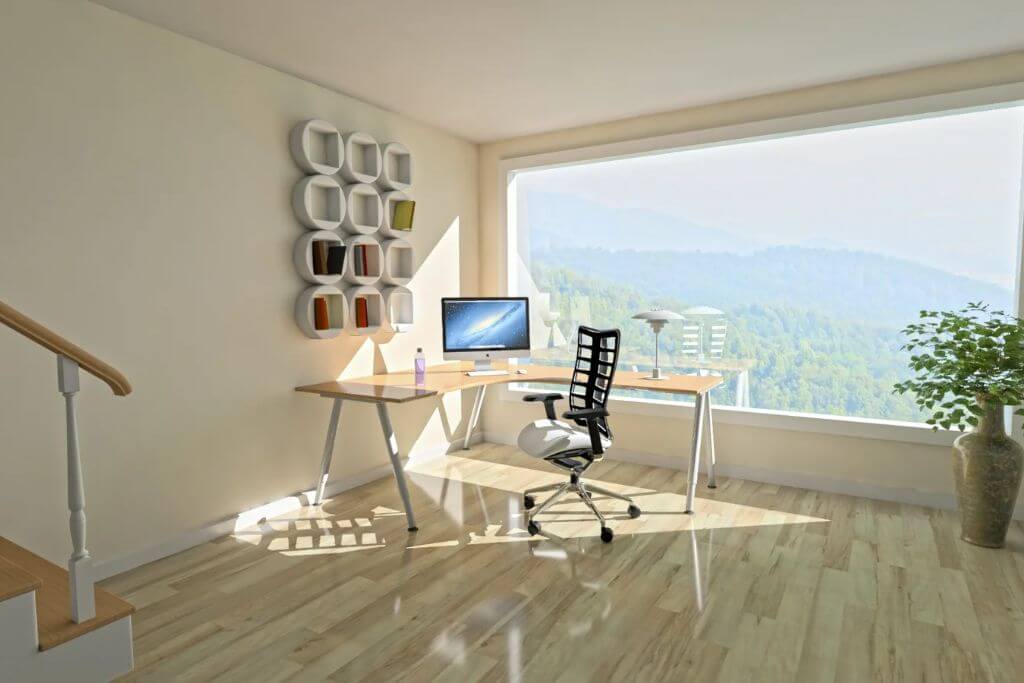
Image by: Unsplash
The Role of Colors in Home Office Design
Colors have a significant impact on mood and productivity. Choose a color scheme that aligns with your work style. Warm tones like yellow and orange can boost energy and creativity, while cool tones like blue and green promote a calm and focused atmosphere. Experiment with different colors and find what works best for you.
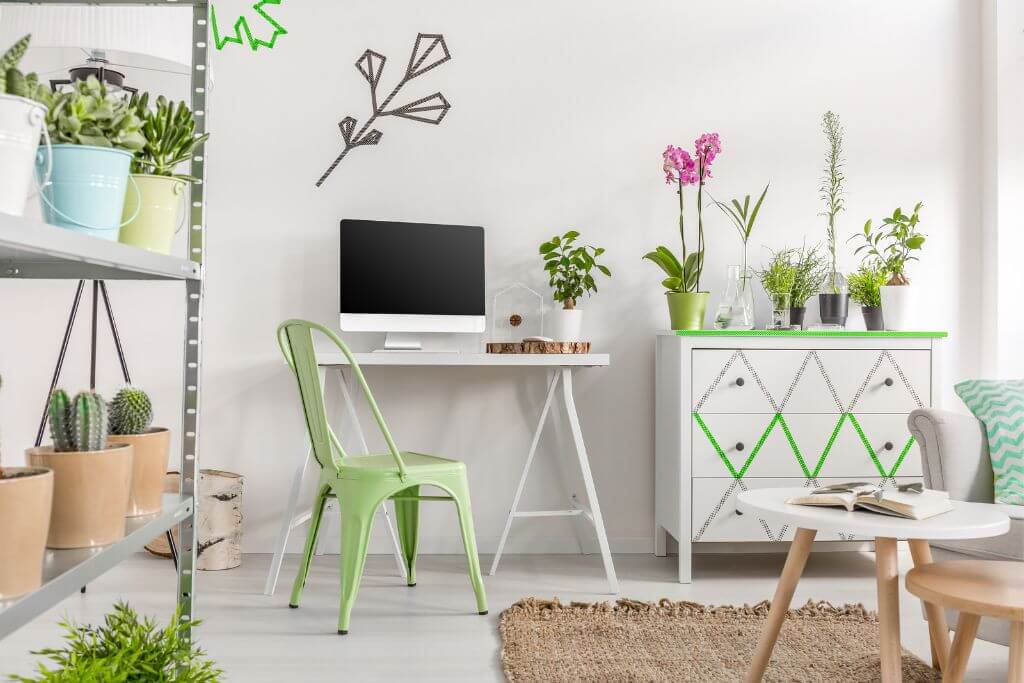
Image by: Unsplash
Final Words
Designing a home office interior is a rewarding process that allows you to create a personalized and productive workspace. You can design an office that promotes focus, creativity, and overall well-being by considering location, natural light, furniture, organization, and personal touches. Remember to prioritize ergonomics, minimize distractions, and infuse your space with your unique style.
Frequently Asked Questions
How much space do I need for a home office?
The space required for a home office depends on your work requirements and available square footage. Aim for a dedicated area that provides enough room for a desk, chair, and storage solutions.
How can I make my home office more comfortable?
To make your home office more comfortable, invest in ergonomic furniture, adjust your desk and chair to ensure proper alignment, and incorporate personal touches that inspire you.
Can I design a home office on a tight budget?
Absolutely! There are plenty of budget-friendly options for designing a home office, such as repurposing existing furniture, shopping second-hand, and utilizing DIY storage solutions.
What lighting should I use in my home office?
Natural light is highly recommended in a home office. Position your desk near a window to maximize daylight. Consider incorporating task lighting, such as a desk lamp, for focused work.
How can I reduce distractions in my home office?
Minimize distractions by keeping your workspace organized, establishing boundaries with others, using noise-canceling headphones, and creating a dedicated work routine.

